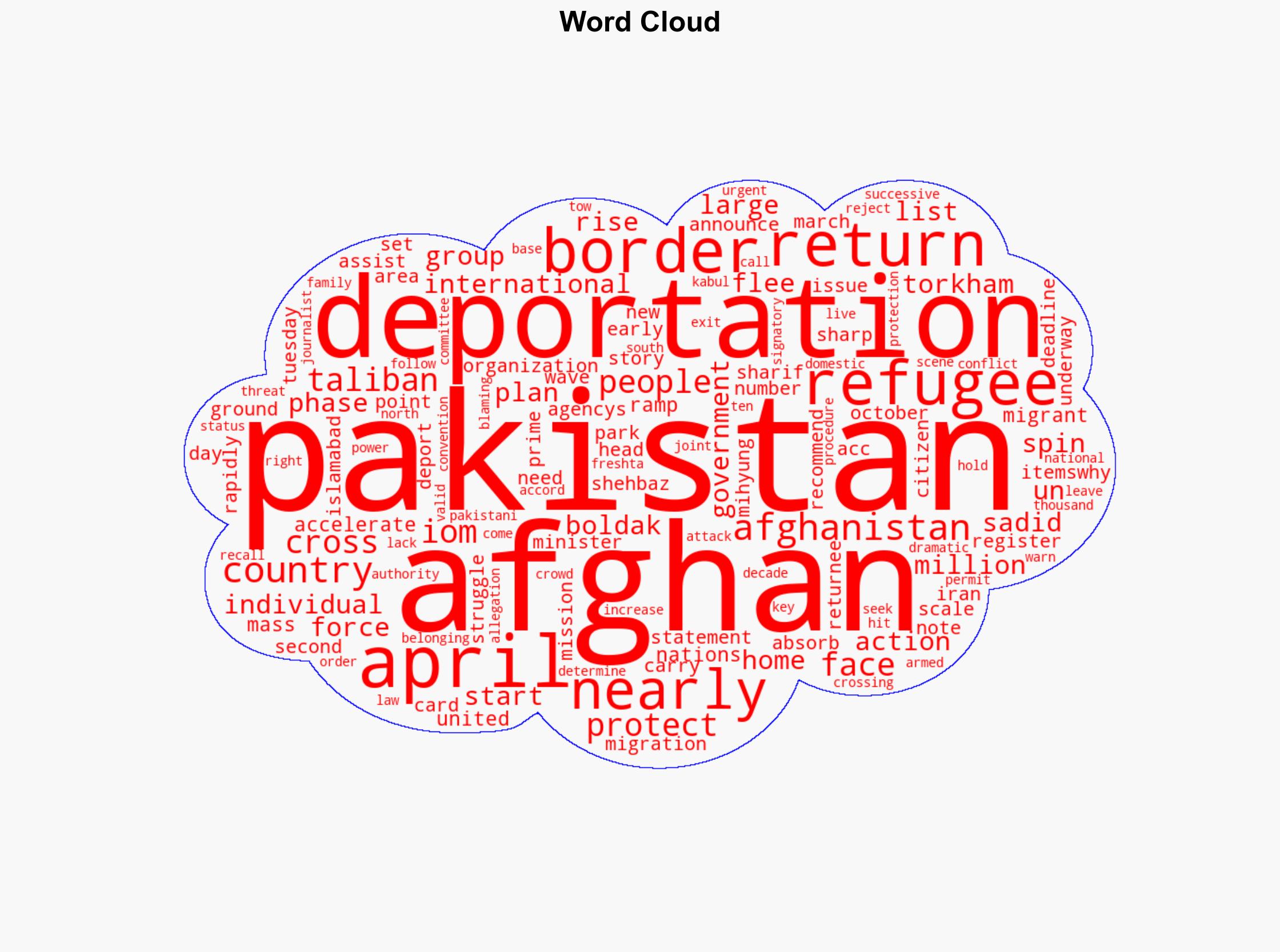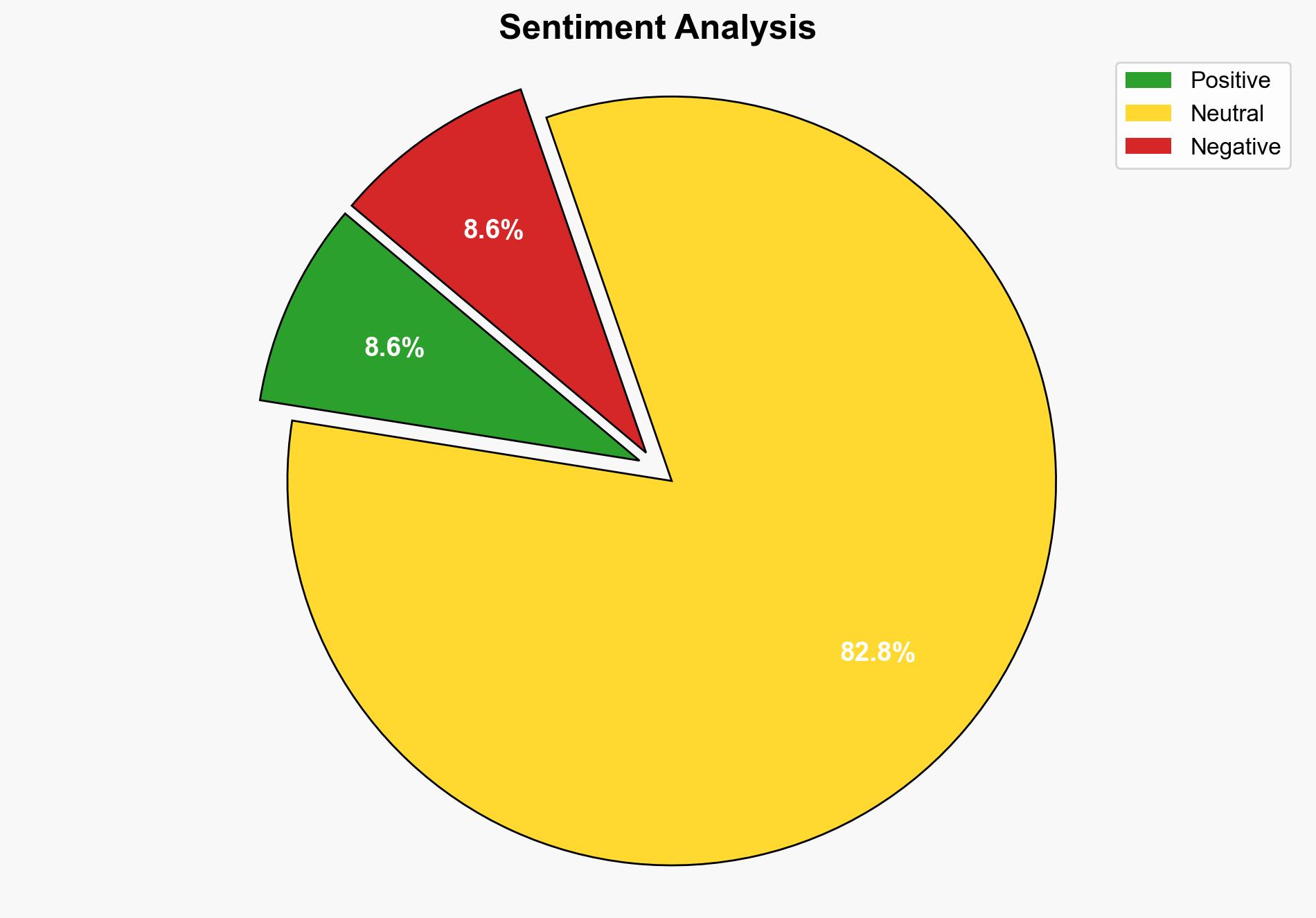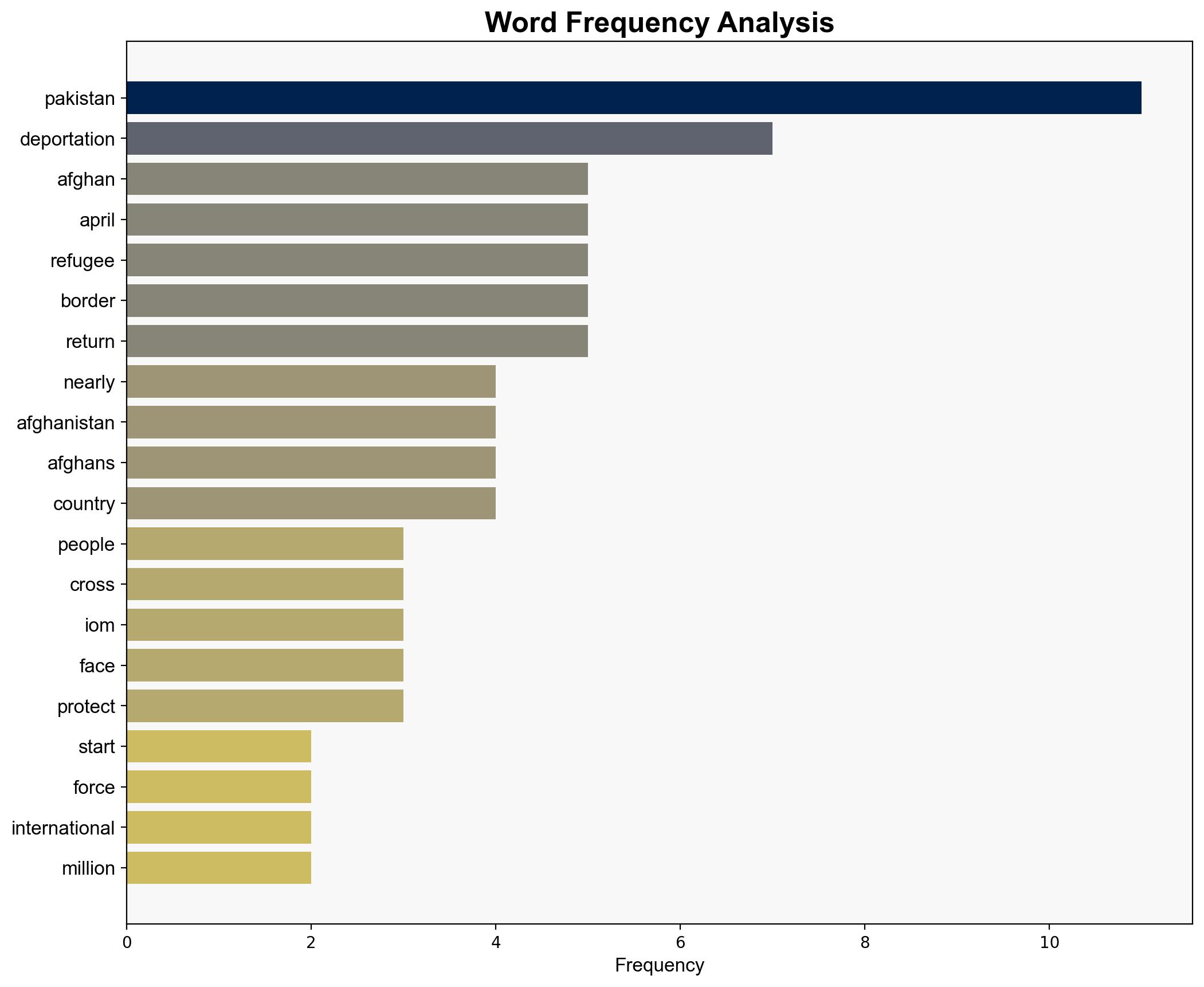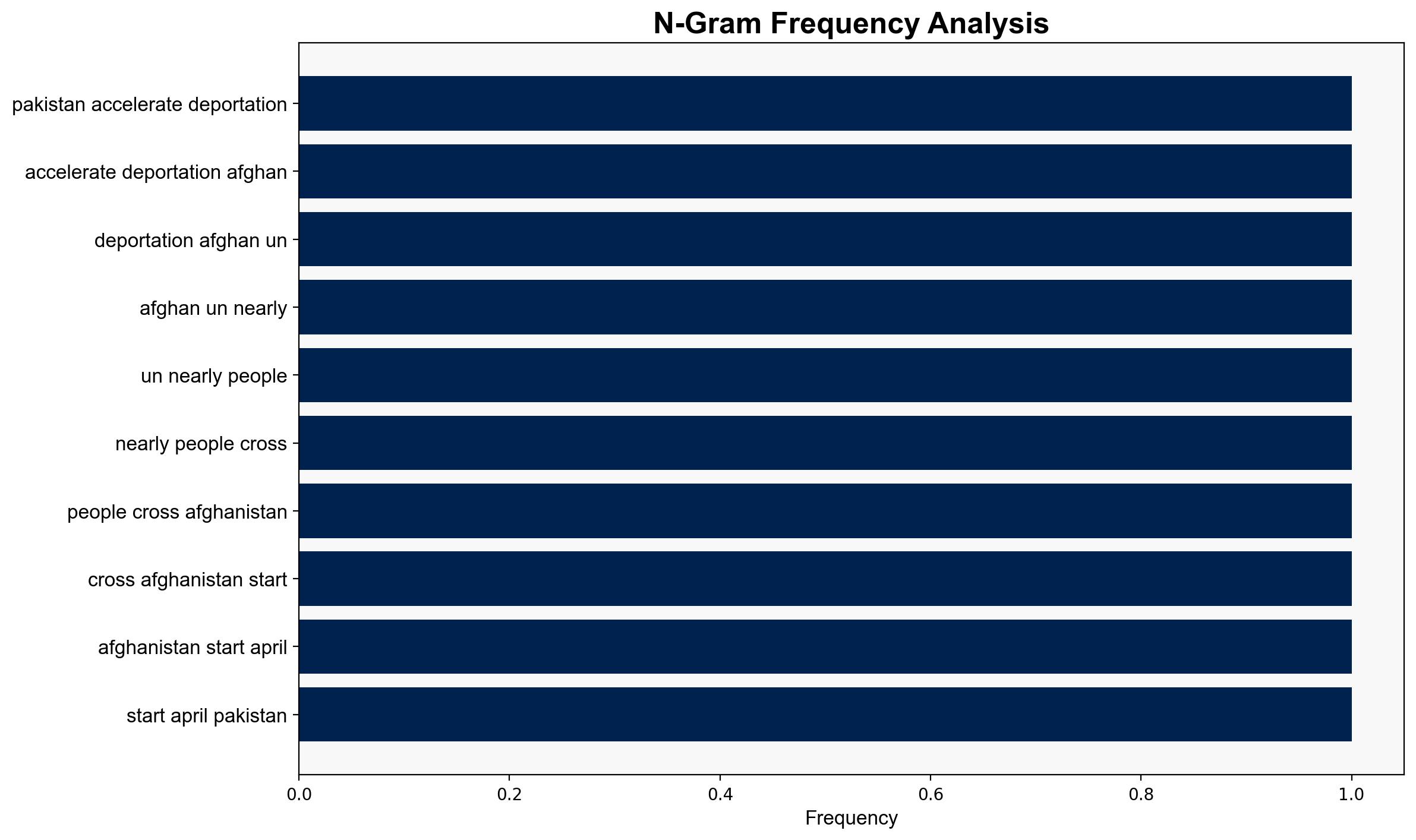Pakistan accelerates deportation of Afghans UN – Al Jazeera English
Published on: 2025-04-15
Intelligence Report: Pakistan accelerates deportation of Afghans UN – Al Jazeera English
1. BLUF (Bottom Line Up Front)
Pakistan has intensified the deportation of Afghan refugees, with nearly 60,000 individuals crossing back into Afghanistan since April. This action is part of a three-phase plan announced in October, affecting approximately three million Afghans residing in Pakistan. The situation poses significant humanitarian and security challenges, with implications for regional stability. Immediate attention and strategic interventions are required to address the escalating needs at the border and in areas receiving returnees.
2. Detailed Analysis
The following structured analytic techniques have been applied for this analysis:
General Analysis
Pakistan’s decision to deport Afghan refugees is driven by internal security concerns and geopolitical dynamics. The mass deportation coincides with increased armed attacks in Pakistan, attributed to groups based in Afghanistan. The lack of legal frameworks for refugee protection in Pakistan exacerbates the vulnerability of Afghan nationals. The deportation process is occurring amidst strained Pakistan-Afghanistan relations, with Kabul rejecting Islamabad’s allegations.
3. Implications and Strategic Risks
The forced deportation of Afghan refugees presents several strategic risks:
- Humanitarian Crisis: The sudden influx of returnees strains Afghanistan’s already limited resources, exacerbating humanitarian needs.
- Regional Instability: Increased tensions between Pakistan and Afghanistan could destabilize the region, affecting neighboring countries.
- Security Threats: The deportation may fuel anti-Pakistan sentiments among displaced Afghans, potentially leading to retaliatory actions.
- Economic Impact: The mass movement disrupts local economies on both sides of the border, affecting trade and livelihoods.
4. Recommendations and Outlook
Recommendations:
- Engage in diplomatic dialogues between Pakistan and Afghanistan to address security concerns and foster cooperation.
- Implement humanitarian assistance programs to support returnees and host communities in Afghanistan.
- Encourage Pakistan to develop legal frameworks for refugee protection in alignment with international standards.
Outlook:
Best-case Scenario: Diplomatic efforts lead to improved bilateral relations, reducing security threats and stabilizing the region.
Worst-case Scenario: Continued deportations exacerbate regional tensions, leading to increased conflict and humanitarian crises.
Most Likely Scenario: Ongoing deportations with intermittent diplomatic engagements result in fluctuating regional stability.
5. Key Individuals and Entities
The report mentions significant individuals and organizations:
- Shehbaz Sharif
- Mihyung Park
- Freshta Sadid
- United Nations International Organization for Migration (IOM)
- Joint Action Committee for Refugees





